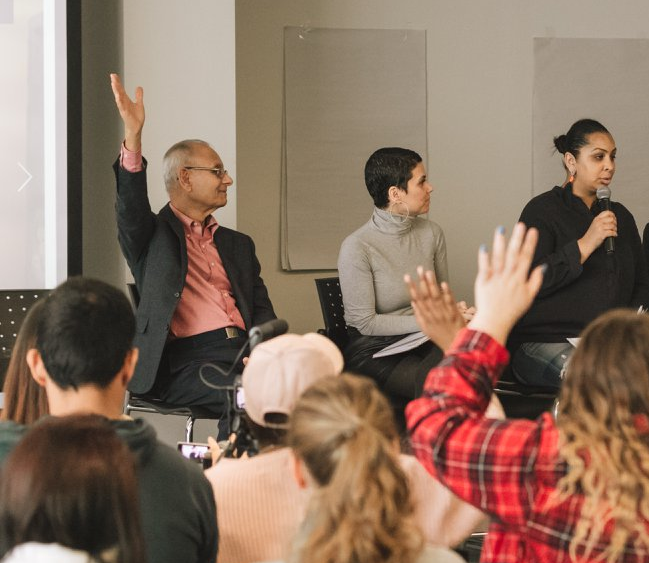Facilitating Transformative Social Change: A public health response to violence in communities.
“Not everything that is faced can be changed, but nothing can be changed until it is faced.” James Baldwin
“The greatest security we can have is created through healthy relationships.” Arthur Lockhart
“Like the infectious diseases in our history, violence is better understood and more successfully treated as an epidemic.” Cure Violence
Meeting: Facilitating Transformative Social Change: A public health response to violence in communities.
Date: April 30th
Panelists: Zya Browne, Elizabeth Correia, Dr. Alok Mukherjee, Chris Glover, Louis March
Time: 10am -2pm
Agenda
10:00am – Welcome – Arthur Lockhart
10:10am – 11:30am – Panelists
11:30am-12:00pm – Lunch Break (Please bring own lunch)
12:00pm-1:30pm – Open Space
1:30pm-2:00pm – Defining next steps
Location: G Building Humber College Lakeshore Campus.
Questions: Please contact Arthur Lockhart at [email protected]
Theme statement of the meeting:
In essence the day is dedicated to engaging in meaningful actions aimed at transforming the cycle of violence in communities-
And in order to do this it can be instructive to explore violence not exclusively through the lens of criminal justice but by way of exploring violence as the manifestation of trauma. And trauma is best approached as a relational matter of public health.
- Address poverty. Reverse the growing gap between rich and poor
- Understand what’s happening. The mainstream narrative is about bad individuals, about guns and gangs. This feeds into a punitive police response. It does nothing to change the survival culture that feeds the cycle of violence. It doesn’t give young men an alternative to picking up a gun in order to get respect.
- Empower people in the communities. Programs should be run by people from the communities and inside the prisons. Recruit them as mentors and as peace negotiators.
- Address the trauma. Take a public health approach – treat the anger, aggression, fear, anxiety, depression and PTSD.
A wonderful book on trauma and transformative social change can be found at:
http://www.traumaandnonviolence.com/chapter1.html
According to the author Steve Wineman:
Understanding trauma can help us to articulate what is deeply wrong with the current society. Personal suffering is the most basic reason for social change.
Understanding trauma can help us to mobilize rage in the service of nonviolent social change.
There is much less recognition that oppression is generically traumatizing.
Racism, patriarchy, homophobia, and economic brutality all routinely violate people’s integrity and repeatedly render people powerless in the face of overwhelming personal and institutional forces. The social experience of people of color, gay people, women, workers, poor people, children, and disabled people is saturated with abuse, humiliation, violence, and negation of personal worth. As Aurora Levins Morales argues, “abuse is the local eruption of systemic oppression, and oppression the accumulation of millions of small systematic abuses.”13
Trauma belies myths that people are immune to destructive social environments, that anyone can emerge unscathed and through hard work succeed, and conversely that those who don’t succeed are to blame for their own failures. The study of trauma can teach us that ours is a sickening society — a society in which toxic social conditions create psychological and physical illness by routinely traumatizing people. It teaches that a society organized around domination is bankrupt not only because it spawns enormous material inequality, violence, and oppressive power relations, but also because it degrades the quality of individual lives on a massive scale through the mechanism of trauma.
So the question for all of us to engage is: How to create healthy relationships as a response to manifestations of violence in our society?
Look forward to hearing from you.

